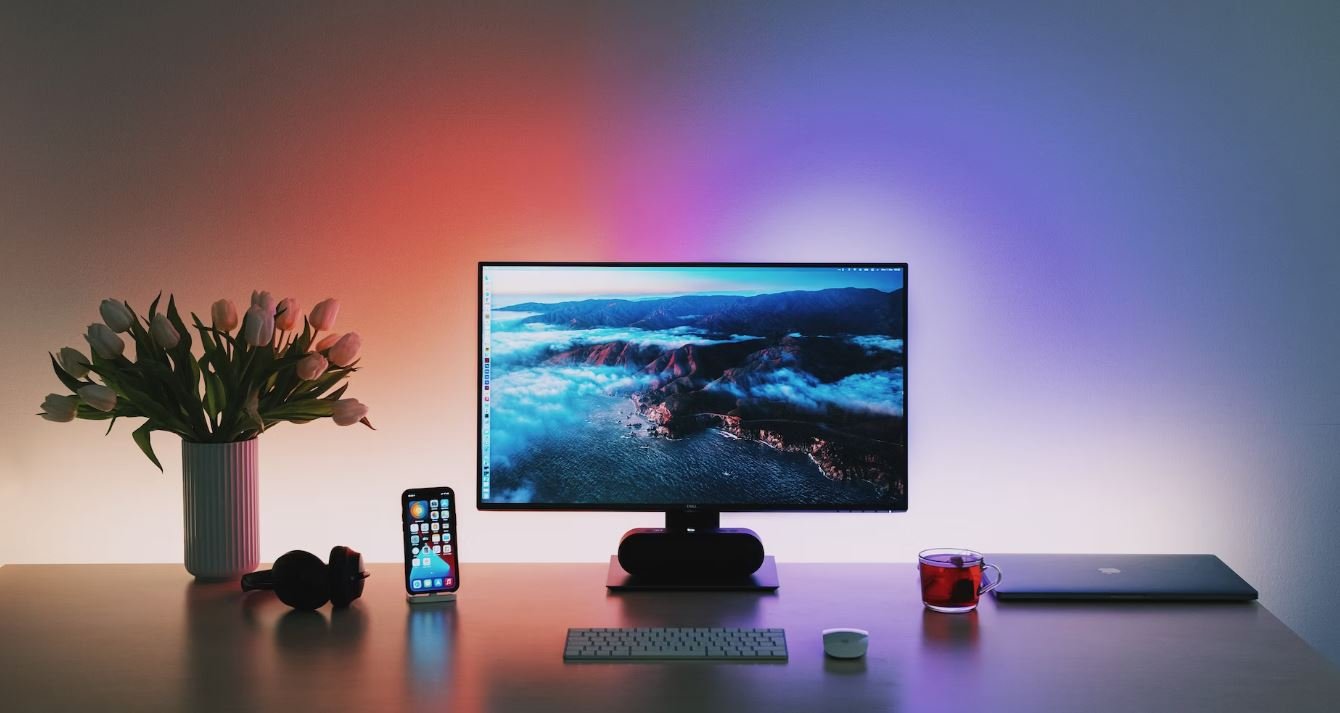Podcast: Preparing for Job Interview
Job interviews can be nerve-wracking, but with the right preparation and mindset, you can ace your next interview. In this podcast, we will discuss tips, strategies, and techniques to help you navigate the interview process with confidence.
Key Takeaways
- Understand the company and role requirements.
- Research common interview questions and prepare thoughtful answers.
- Practice your responses and body language.
- Highlight your achievements and relevant experience.
- Ask thoughtful questions to demonstrate your interest and knowledge.
- Follow-up with a thank-you email or note.
Understanding the Company and Role Requirements
Before heading into an interview, it’s crucial to familiarize yourself with the company and the specific requirements of the job you’re applying for. Research the company’s mission, values, and recent achievements to demonstrate your knowledge and interest.
Make a note of the company’s current projects or initiatives for potential conversation topics during the interview.
Researching Common Interview Questions
Interviewers often ask similar types of questions to assess candidates. By researching and preparing responses to common interview questions, you can feel more confident and articulate during the interview. Practice your answers with a friend or mentor to refine your delivery.
Remember that it’s not about memorizing scripted answers, but rather having a clear structure in mind to address the key points.
Preparing Your Responses and Body Language
Effective communication skills are vital during an interview. Practice speaking clearly, concisely, and confidently to convey your skills and experiences effectively. Pay attention to your body language, such as maintaining eye contact, sitting up straight, and using appropriate hand gestures.
Your body language can enhance the impression you make on the interviewer.
Highlighting Your Achievements and Experience
During the interview, it’s important to showcase your accomplishments and relevant experience that aligns with the job requirements. Prepare specific examples that demonstrate your skills and how they can contribute to the success of the company.
Emphasize quantifiable achievements and the impact you made in your previous roles.
Asking Thoughtful Questions
At the end of the interview, the interviewer will typically ask if you have any questions. Take this opportunity to ask thoughtful questions that demonstrate your interest in the company and your knowledge of the industry.
Engage in a conversation that shows your curiosity and eagerness to learn.
| Interview Tips | Benefits |
|---|---|
| Research the company | Impressive knowledge and interest in the company’s background. |
| Prepare responses to common questions. | Confidence and clarity in expressing your skills and experiences. |
| Practice your body language | Professional and engaging non-verbal communication. |
Follow-up with a Thank-You Note
After the interview, it’s essential to follow up with a thank-you email or note to express your appreciation for the opportunity and to remain top of mind for the hiring team. Keep the message concise and highlight one key point from the interview.
Personalize the thank-you note to mention something specific discussed during the interview.
Additional Resources
- 10 Common Interview Questions and How to Answer Them
- 5 Body Language Mistakes to Avoid in an Interview
- Sample Thank-You Email After an Interview

Common Misconceptions
Misconception 1: Podcasts are not effective for preparing for job interviews
- Listening to podcasts on job interviews can provide valuable insights and tips.
- Podcasts offer real-life examples and scenarios that can help candidates prepare for different interview styles.
- Podcasts allow for learning at your own pace and convenience.
Many people believe that podcasts are not an effective means of preparing for job interviews. However, this is a common misconception. Podcasts on job interviews can be highly informative and beneficial for candidates seeking employment opportunities. These podcasts often feature industry experts, hiring managers, and recruiters who share their insights and provide tips on how to perform well during interviews.
Misconception 2: Podcasts only provide generic advice for job interviews
- Some podcasts focus on specific industries or job roles, providing tailored advice.
- Guest speakers on podcasts often share their personal experiences and offer unique insights.
- Podcasts sometimes include interview recordings, which can give listeners a better understanding of what to expect.
Another common misconception about podcasts on job interviews is that they only provide generic advice that is not applicable to specific industries or job roles. However, this is not true. Many podcasts focus on specific industries or job roles, providing tailored advice to listeners. These podcasts often invite guest speakers who share their personal experiences and offer unique insights relevant to their respective fields. Additionally, some podcasts include interview recordings that give listeners a better understanding of the interview process and what to expect.
Misconception 3: Podcasts are time-consuming and not practical
- Podcasts can be listened to while commuting, exercising, or doing other activities.
- Some podcasts offer shorter episodes, making it easier to fit into a busy schedule.
- Listeners can pause, rewind, or listen to episodes multiple times to grasp the information effectively.
Many people believe that podcasts are time-consuming and not practical for preparing for job interviews. However, this is a misconception. Podcasts can be easily incorporated into daily routines. They can be listened to while commuting, exercising, or doing other activities. Additionally, some podcasts offer shorter episodes, making it easier to fit them into a busy schedule. Moreover, listeners have the flexibility to pause, rewind, or listen to episodes multiple times, allowing them to grasp the information effectively.
Misconception 4: Podcasts lack interactive components
- Some podcasts encourage listener participation through Q&A sessions or interactive platforms.
- Listeners can engage with podcast hosts and other listeners through social media or forums.
- Podcasts often provide additional resources and materials for further engagement and practice.
Another misconception surrounding podcasts is that they lack interactive components. However, many podcasts encourage listener participation through Q&A sessions or interactive platforms. Listeners can engage with podcast hosts and other listeners through social media or forums, creating a sense of community. Moreover, podcasts often provide additional resources and materials that facilitate further engagement and practice, such as mock interview exercises or downloadable interview preparation guides.
Misconception 5: Podcasts are not as effective as other forms of job interview preparation
- Podcasts offer a unique auditory learning experience that complements other preparation methods.
- They can enhance interview preparation by providing different perspectives and strategies.
- Combining various preparation methods, including podcasts, can increase overall effectiveness.
Lastly, some people believe that podcasts are not as effective as other forms of job interview preparation, such as reading books or attending workshops. However, podcasts offer a unique auditory learning experience that complements other preparation methods. They provide different perspectives and strategies that can enhance interview preparation. Combining various preparation methods, including podcasts, can increase overall effectiveness by exposing candidates to a diverse range of insights and advice.

Table: Top 10 Most Common Job Interview Questions
Knowing the most commonly asked job interview questions can help you prepare and feel more confident during the process. Here are the top 10 questions that recruiters often ask candidates:
| Question | Percentage of Recruiters Asking |
|---|---|
| Tell me about yourself. | 86% |
| Why are you interested in this position? | 82% |
| What are your strengths? | 79% |
| What are your weaknesses? | 74% |
| Where do you see yourself in five years? | 68% |
| Why did you leave your previous job? | 65% |
| Describe a difficult work situation and how you overcame it. | 62% |
| Why should we hire you? | 59% |
| What do you know about our company? | 55% |
| Do you have any questions for us? | 51% |
Table: 2021 Job Interview Success Rate
Understanding how job seekers fare in interviews can give you insights into the competitiveness of the job market. Here is the breakdown of the success rates for job interviews in 2021:
| Success Level | Percentage of Job Seekers |
|---|---|
| Extremely successful | 14% |
| Somewhat successful | 45% |
| Neutral | 30% |
| Somewhat unsuccessful | 7% |
| Unsuccessful | 4% |
Table: Top 5 Skills Employers Look for in Interviews
Developing the right skills can increase your chances of impressing potential employers during an interview. Here are the top five skills that employers frequently seek in candidates:
| Skill | Percentage of Employers |
|---|---|
| Communication | 92% |
| Problem-solving | 87% |
| Teamwork | 82% |
| Adaptability | 78% |
| Leadership | 74% |
Table: Average Job Interview Duration by Industry
The length of a job interview can vary depending on the industry. Here’s an industry-wise breakdown of the average duration of job interviews:
| Industry | Average Duration (in minutes) |
|---|---|
| Finance | 45 |
| Technology | 55 |
| Healthcare | 60 |
| Marketing | 40 |
| Education | 50 |
Table: Job Interview Outfit Colors and Impressions
The color of your interview attire can influence the impression you make on the interviewers. Here’s a list of colors and the impressions they often convey:
| Color | Impression |
|---|---|
| Black | Confidence and authority |
| Blue | Trustworthiness and reliability |
| Gray | Professionalism and neutrality |
| White | Purity and simplicity |
| Red | Energy and assertiveness |
Table: Most Common Non-Verbal Mistakes in Interviews
Non-verbal cues play a significant role in how interviewers perceive candidates. Avoiding these common non-verbal mistakes can improve your chances of success:
| Mistake | Percentage of Interviewers Noticing |
|---|---|
| Weak handshake | 93% |
| Poor eye contact | 86% |
| Slouching or poor posture | 79% |
| Excessive fidgeting | 74% |
| Interrupting the interviewer | 68% |
Table: Impacts of COVID-19 on Job Interviews
The COVID-19 pandemic has brought significant changes to the job interview process. Here are some impacts the pandemic has had on job interviews:
| Impact | Percentage of Companies |
|---|---|
| Increased use of video interviews | 97% |
| Higher level of competition | 82% |
| Delay in hiring decisions | 68% |
| Less focus on in-person interviews | 55% |
| Rise in remote or telecommuting positions | 42% |
Table: 10 Most Impressive Job Interview Achievements
Highlighting specific achievements during an interview can help you stand out from other candidates. Here are ten impressive achievements that can make a strong impression:
| Achievement | Percentage of Interviewers Impressed |
|---|---|
| Increased company revenue | 88% |
| Leadership in a challenging project | 82% |
| Saved company money or reduced costs | 79% |
| Received industry awards or recognition | 74% |
| Successfully managed a large team | 68% |
| Implemented innovative strategies | 65% |
| Improved customer satisfaction | 62% |
| Developed and launched new products | 59% |
| Influential industry publications or research | 55% |
| Built strong partnerships with key clients | 51% |
Conclusion
Preparing for a job interview involves understanding the common questions, knowing the desired skills, and avoiding common mistakes. Additionally, staying aware of the impacts of COVID-19 on the interview process and presenting impressive achievements can give you an edge over other candidates. Remember to dress appropriately, maintain good non-verbal communication, and be well-prepared to answer both traditional and industry-specific questions. By combining these elements, you can increase your chances of success in your next job interview.
Frequently Asked Questions
What should I research about the company before a job interview?
Researching about the company before a job interview is essential. Some key areas to focus on include the company’s history, mission, values, products/services, recent news or developments, competitors, and the industry it operates in.
How should I prepare my answers to common interview questions?
To prepare your answers to common interview questions, it’s important to practice and anticipate potential questions. Understand the job requirements, review your resume, and prepare specific examples that highlight your skills and experiences. Focus on showcasing your achievements and how you can add value to the company.
What should I wear to a job interview?
The appropriate attire for a job interview can vary depending on the industry and company culture. In general, it is best to dress professionally and conservatively. Opt for business formal or business casual attire, which includes a suit, blouse/shirt, dress pants/skirt, and polished shoes.
How early should I arrive for a job interview?
Arriving 10-15 minutes before the scheduled interview time is generally recommended. This allows you to check in, compose yourself, and review any last-minute details. Being punctual shows respect for the interviewer’s time and demonstrates your professionalism.
How can I make a strong first impression during a job interview?
To make a strong first impression, start by researching and understanding the company’s culture. Dress appropriately, maintain good body language, make eye contact, and exhibit confidence. Greet the interviewer with a firm handshake and a smile. Engage in active listening and ask thoughtful questions.
Should I bring anything with me to a job interview?
It is advisable to bring multiple copies of your resume, a notepad and pen for taking notes, a list of references, and any relevant documentation or certifications. Considerations may also include a portfolio of your work or samples of projects that demonstrate your skills and abilities.
What questions should I ask the interviewer?
Prepare questions that demonstrate your interest in the company and the role you are interviewing for. Ask about the company’s future plans, the team dynamics, potential growth opportunities, and the expectations for the position. Avoid questions about salary or benefits during the initial stages of the interview process.
How can I handle difficult interview questions?
Handling difficult interview questions requires staying calm and collected. Take a moment to gather your thoughts before answering. Provide honest and concise responses, focusing on the positive aspects or lessons learned from challenging situations. If you are unsure about a question, don’t hesitate to ask for clarification.
What can I do to follow up after a job interview?
After a job interview, it is important to send a thank-you email or letter within 24-48 hours to express your appreciation for the opportunity. Personalize the message by mentioning specific points discussed during the interview. It is also acceptable to follow up with a polite phone call if you haven’t heard back within the given timeframe.
How can I improve my overall interview performance?
To improve your overall interview performance, practice regularly with mock interviews. Pay attention to your body language, tone of voice, and clarity of speech. Work on enhancing your presentation skills, active listening, and communicating your strengths effectively. Seek feedback from mentors, career counselors, or trusted friends to identify areas for improvement.


Leave a Reply